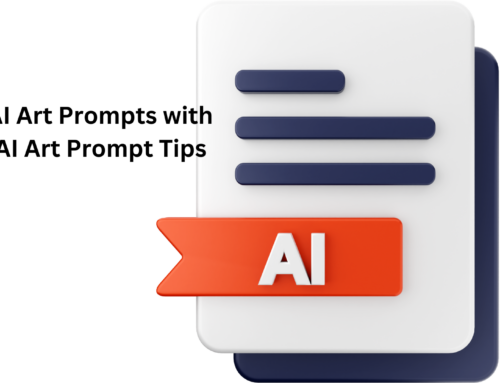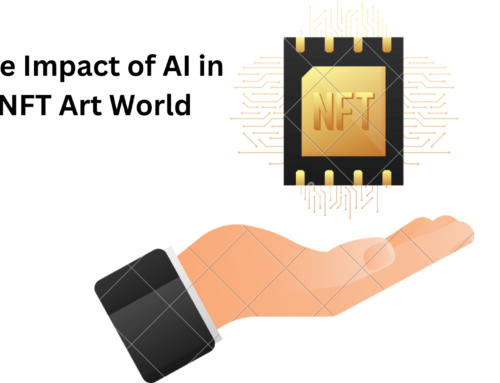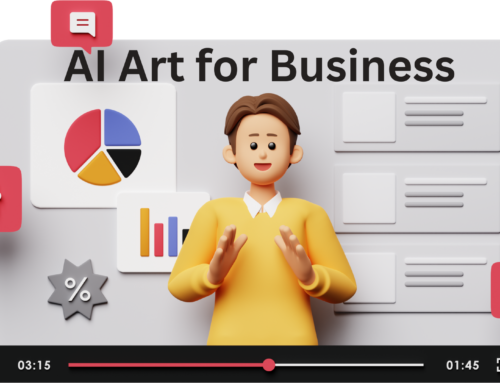
Artificial Intelligence generated photos have become a fascinating application of the technology, pushing the limits of artistic expression and aesthetics. AI-generated images, in particular, can be a game-changer in creating compelling thumbnails for videos and articles. Traditionally, we’ve been reliant on either stock images or manual creation of these thumbnails.
However, AI brings to the table a level of personalization and appeal that can significantly enhance the effectiveness of these visual cues.’ cites Harry Johns White, Marketing Manager at NBAblast. Let’s delve deep and find out how AI Image Tools can potentially change the way we see art.
How to AI helps in generating an image?
‘Artificial Intelligence (AI) plays a crucial role in automating the process of image captioning and generating descriptions. By harnessing the power of AI, we can unlock extraordinary potential in accurately describing visual content’ as per HenffreyMuthama, Marketing Executive at HardwareHow.
- Image Analysis: AI algorithms are able to analyze an image’s visual content, recognizing the objects, sceneries, and contextual aspects that are there.
- Natural Language Processing (NLP): AI algorithms can analyze the outcomes of image analysis to provide evocative captions or descriptions. ‘AI can assist in automating the process of image captioning and description generation by utilizing deep learning techniques, such as convolutional neural networks (CNNs) and recurrent neural networks (RNNs), to analyze visual features within images and generate natural language descriptions that accurately represent the content of the images.
- Semantic Understanding: Based on the relationships between the objects in an image, AI models can create precise and logical descriptions of the objects.
- Training on Large Datasets: To enable AI models to understand patterns and produce pertinent textual material, they can be trained on sizable collections of photos with associated labels or descriptions.
- Real-time automation: AI-powered systems are capable of instantly generating captions or descriptions, making them suited for use in accessibility, social networking, and picture recognition applications.
- Personalization and customization: AI algorithms can be adjusted to provide captions or descriptions by certain domains, fashions, or user preferences.
How does AI improve images?
When asked about the above, Robert Thorpe, CEO and Co-founder of HiStylePicks LLCAI said that AI can improve the accuracy of image search by understanding the context and content of images. Through deep learning algorithms, AI can analyze images at a pixel level, identifying objects, people, and even emotions.
- Upscaling and Enhancement: AI algorithms can increase the clarity and quality of low-resolution photos by intelligently anticipating and filling in missing elements. ‘AI significantly enhances image search and recommendation systems by extracting meaningful features from images. Through techniques like image recognition and content-based image retrieval, AI models can understand the visual content of images and provide accurate search results or recommendations based on similarity or relevance.’ cites Michael Hongo, MD expert of Polymike Tech.
- Style Transfer: AI facilitates the transfer of artistic styles from one image to another, resulting in the creation of distinctive and visually arresting compositions.
- Object Removal and Manipulation: AI algorithms can intelligently remove undesired things from photos or manipulate them to alter the visual content.
- Automated editing: AI streamlines and automates a variety of picture editing activities, including colour correction, retouching, and image restoration. ‘AI can automate various aspects of image editing, such as object removal, background replacement, or color correction. By understanding the content and structure of images, AI algorithms can perform precise and efficient edits, saving time and effort for photographers and graphic designers.’ cites Eric Jones, CEO of Couture Candy.
Challenges and Implications of AI-Generated Images
- Ethical Issues: Deepfake technology and another potential misuse of AI-generated images might raise ethical concerns about privacy, authenticity, and possible abuse.’One major concern is the potential for misuse and the creation of deepfake images, which can deceive and manipulate individuals. AI-generated images can be used maliciously, spreading misinformation or creating false evidence’ said ZahidAdnan, Cief Editor & Founder of The Plant Bible.
- Fairness and Bias: The underlying datasets used to train AI models may be biased, which could produce biassed images and uphold societal imbalances.
- Intellectual Property: Since AI-generated graphics frequently borrow parts of pre-existing works, they create copyright ownership and intellectual property rights issues.” It’s important to note that hand-painted art occupies a unique space that AI art can’t replace, but rather, it can assist and complement the artistic process.” as per Aaron D’cruz, CEO & Co-Founder of Muralsite.
- Disinformation and Trust: Rahul, CEO of Webspero Solutions states that the proliferation of AI-generated images calls into question the veracity of visual data, raising the possibility of manipulation and disinformation.’Challenges related to AI-generated images include ethical considerations, such as the potential for misinformation ‘ cites.
- Legal and Regulatory Frameworks: Given how quickly AI-generated images are developing, it is essential to create proper legal and regulatory frameworks to manage any risks and issues that may arise.
How does AI influence the future of image generation and manipulation?
“It enables the creation of highly realistic and detailed images, empowering artists and designers with new creative possibilities. However, it raises questions about the validity of photographs as well as the possibility of exploitation and deceit. Finding a happy medium between innovation and ethical concerns will be critical in molding the future of AI-powered picture production and modification,” cites Nathan Clark, Co-Founder of Gate2Ai.
- Enhanced Creativity: AI opens up new artistic possibilities and styles, enhancing the creative expression of image creation and modification. Adam Karl, Founder/HRO of Herobot.app quoted, “AI will continue to shape the future of image generation and manipulation. Generative models, such as deep neural networks, have already demonstrated remarkable capabilities in generating highly realistic and novel images. This opens up exciting possibilities for creative applications, such as artwork, virtual reality, and even virtual worlds.”
- Automation and Efficiency: AI speeds up the creation and editing of images, automating labor-intensive jobs for greater productivity.
- Personalization: AI enables personalized picture creation and manipulation, adjusting graphics to certain applications and personal tastes.
- Accessibility: AI makes using image creation and editing tools simpler, enabling anyone with little to no artistic talent to produce visually striking content.
- Ethical Issues: Because AI-generated images are so widely used, there are ethical issues with their authenticity, privacy, and potential for abuse. These issues call for cautious regulation and responsible use.
Epilogue
“Despite this challenge though, I see a bright future ahead for image generation thanks to advances in artificial intelligence technology” as per Vaibhav Kakkar, CEO of Digital Web Solutions. AI has a huge impact on how images are created and edited. It promotes accessibility, automates procedures, fosters innovation, and allows for personalization. To apply AI responsibly and fairly in influencing the future of image creation, it is necessary to address ethical issues and obstacles related to bias, intellectual property, and misinformation.

Airbrush
In conclusion, artificial intelligence has revolutionized image processing by providing faster, more accurate, and efficient image analysis and manipulation. It has allowed for the creation of new tools and technologies that were once thought impossible. AI-powered image processing is now widely used across various industries, from healthcare and automotive to entertainment and advertising.
If you are interested in exploring the power of AI in image processing, we encourage you to try Airbrush, a powerful image editing app that features AI Image Generators tool. This tool allows you to quickly and easily transform your photos into stunning works of art, with just a few clicks. So why wait? Signup Airbrush today and experience the power of AI for yourself!








Leave A Comment